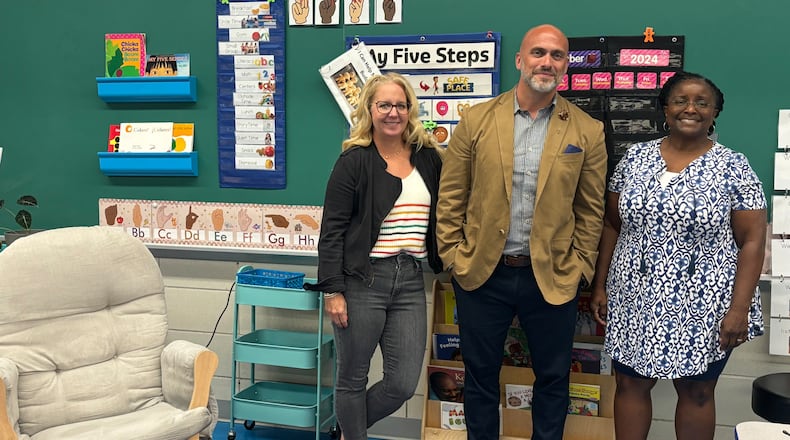The preschool where the Newcomer program will be already serves high-needs students who have a lot of disabilities or are deaf. The school does not kick students out of the preschool - something that can happen to preschool students – and the staff who work there are trained specifically to work with high-need students.
MCESC combined several grants totaling about $700,000 for the program, all from ODJFS.
Some of the places these refugees are coming from to the Dayton area include Ukraine, some Arab countries and some African countries.
Schools in the region have also seen an influx of students who don’t speak English, meaning more schools have also been hiring English as a second language teachers. A partner program at the International Learning Center works with older kids who don’t speak English, particularly in more rural districts that may have fewer resources for English learning kids.
A recent study that followed families from childhood to adulthood found preschool closed gaps for low-income students who attended a preschool, and wage gaps closed when low-income students attended a high-quality preschool. Other studies have found similar results for high school graduation.
Districts such as Dayton Public and Trotwood offer universal preschool for students in their district.
Warner noted 90% of the brain is developed by age 5, when kids start “regular” public school in kindergarten. Those are the years kids are developing multiple skills, including language, motor, emotional capabilities and impulse control, among other skills. Intervening earlier can help kids regulate their emotions better and find ways of coping, particularly for the kids who have already had difficult lives.
“We know that the younger that we get them, the more impact that we can have on their development as they go,” Warner said.
The program has yet to enroll any students. Julie Emmons, a longtime Trotwood preschool teacher and now the Newcomer classroom teacher, has been hanging up flyers around Kettering in hopes a family sees them.
The MCESC has been working with Catholic Social Services, the Dayton Metro Library and Preschool Promise to spread the word. Catholic Social Services is often the organization settling new refugees in the area.
But Emmons said she knows it will be an adjustment for parents to bring their kids to school for six hours a day. Once the families are interested, Emmons said she and the assistant teacher, Sherri Bolden, plan to bring in the parents to the classroom.
The kids in many of the preschool’s classrooms already bring pictures of loved ones to school and can look at them when they feel overwhelmed, something Emmons said she wanted to do too.
Both Emmons and Warner said they will have to be flexible and learn a lot as they go, which Emmons said she’s looking forward to.
“It’s growth for me as an educator,” she said. “They’ll be here and what we can do for them is be that safety net for them.”
More details
The program is open to families with refugee status in the region, including those in Montgomery, Miami, Greene, Warren and Clark counties.
About the Author

